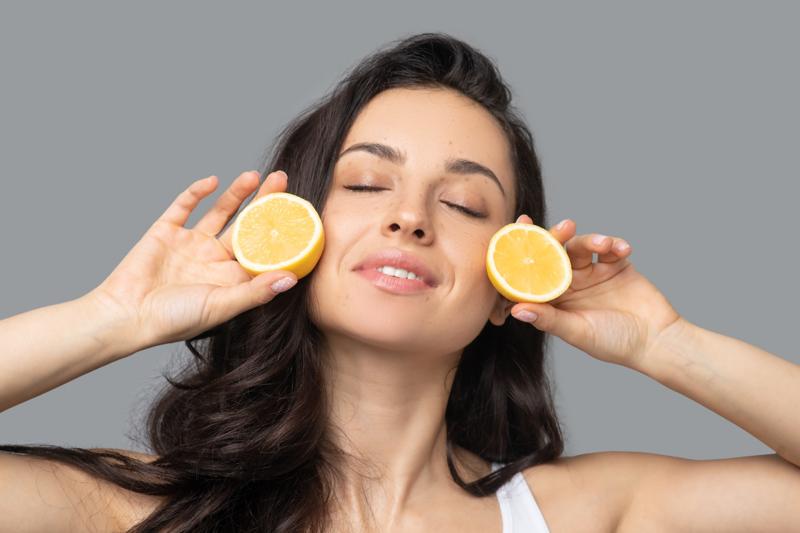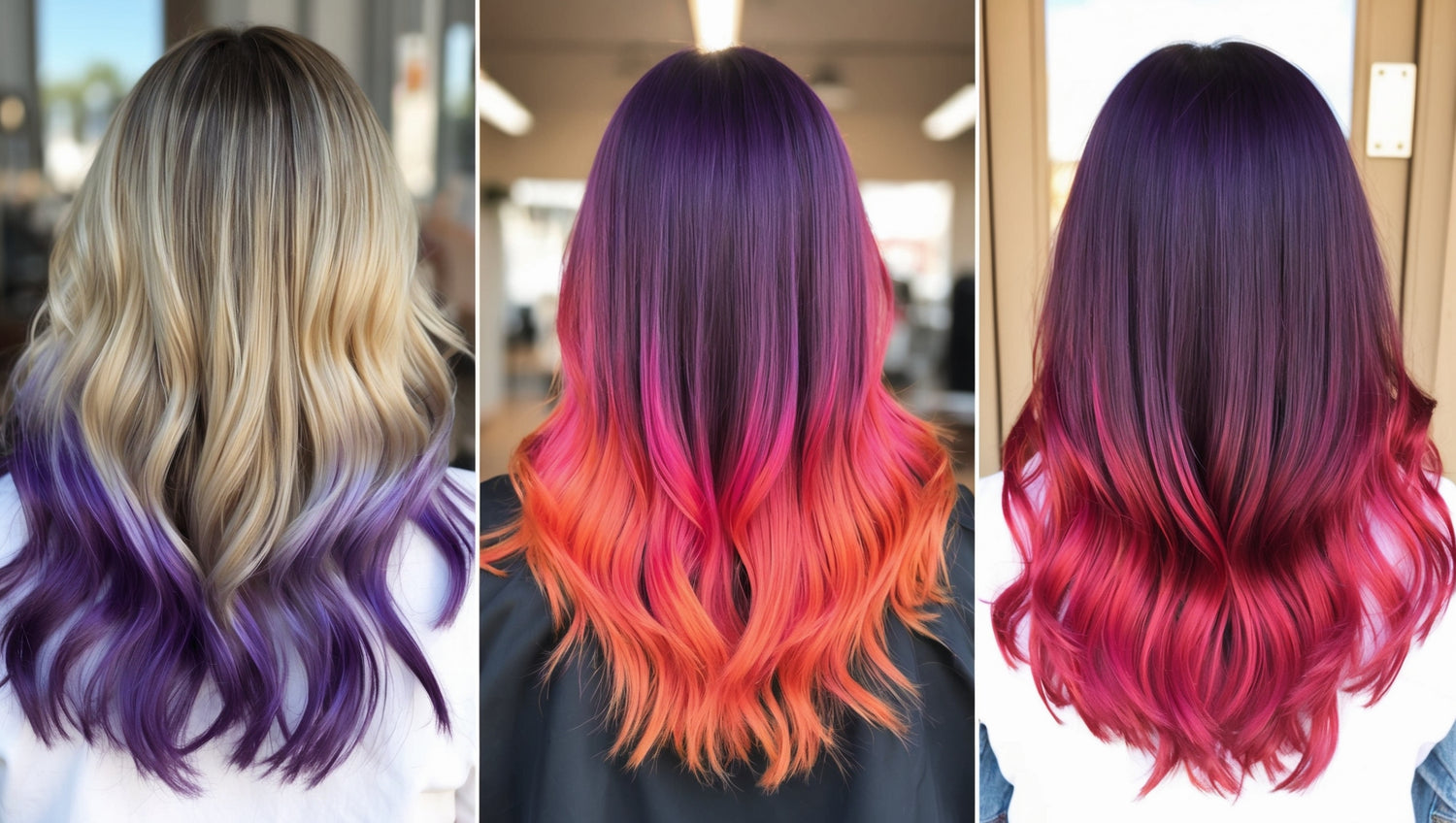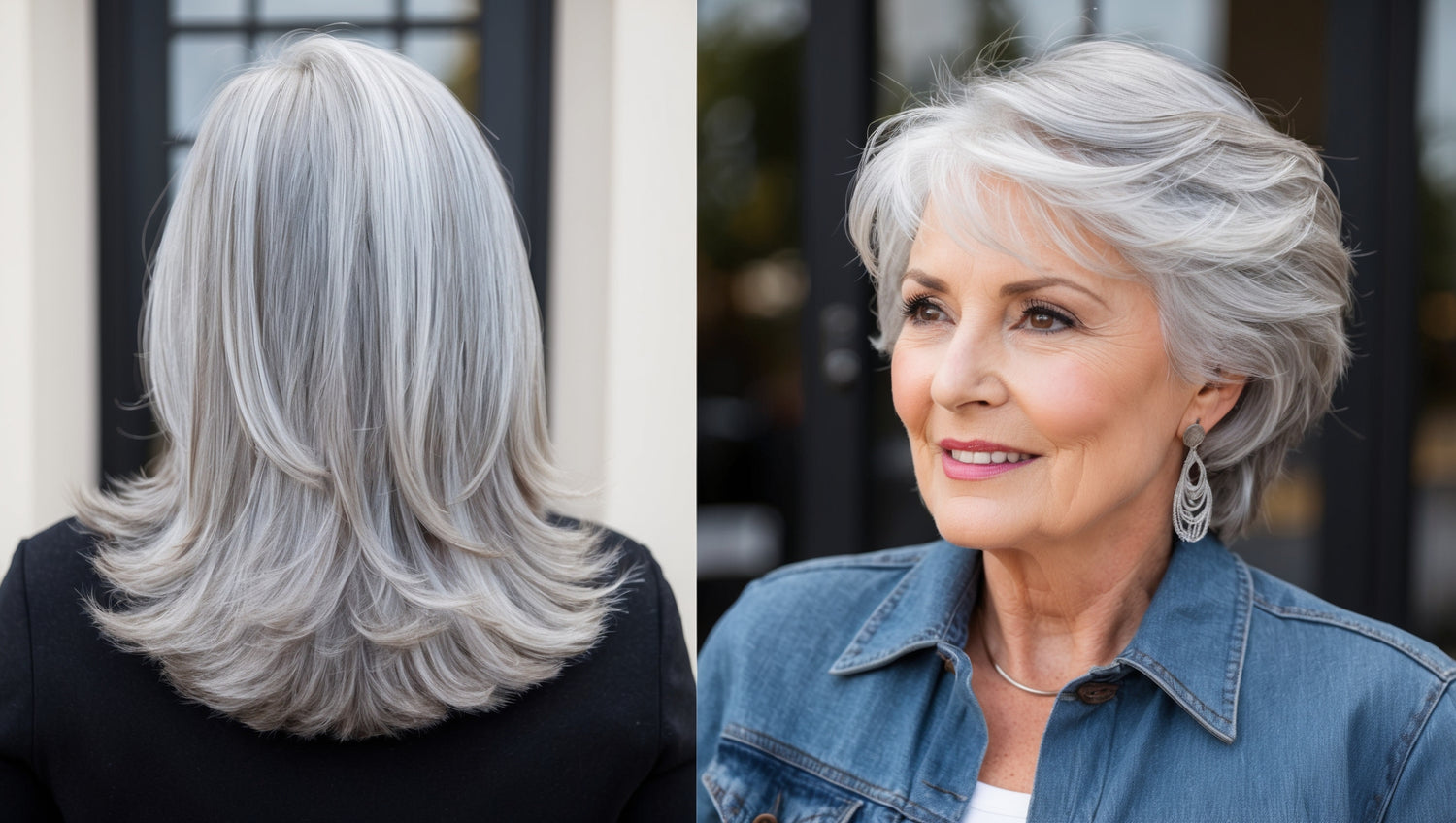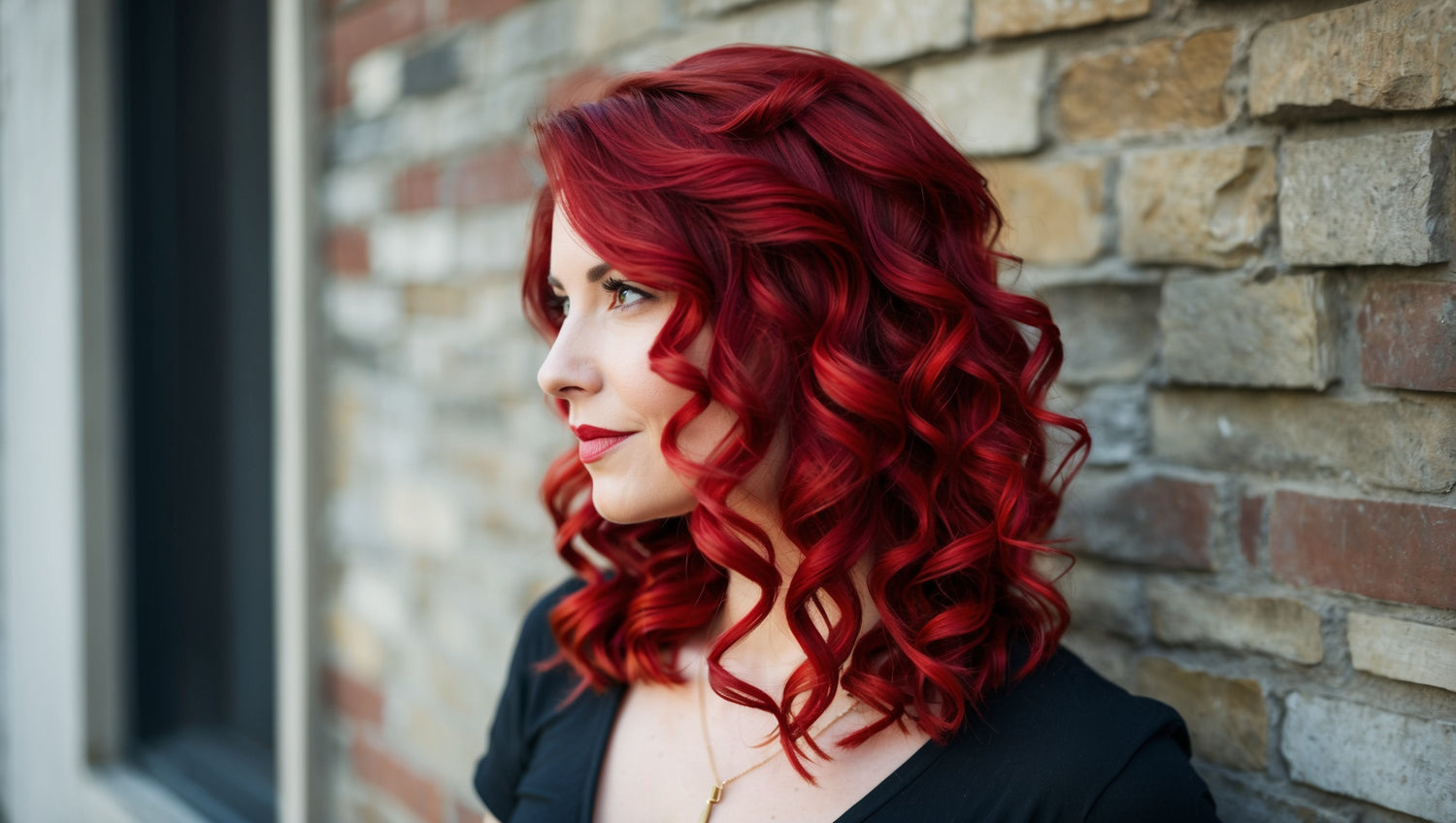You want to do something good for your hair and pamper it with exclusive care products, but you don't notice any effect other than a slight improvement? This may be because the best care from the outside is of no use if the supply of nutrients from the inside is not good.
With a balanced and well-thought-out diet, you can provide your body and therefore your hair with all the nutrients it needs, because your hair receives its nourishment from your bloodstream and is therefore directly dependent on what you eat. With the right diet, beautiful, long and healthy hair doesn't have to remain a dream. In this article, you'll learn everything you need to know about the most important nutrients for healthy hair and the interaction between micronutrients and hair health, so that you'll know what you might be lacking.
WHICH VITAMINS ARE GOOD FOR HAIR?
There are 13 vitamins in total, nine of which are particularly important for beautiful hair. In principle, you can meet your needs through food, but if you have a deficiency, dietary supplements can be useful. A special vitamin-rich shampoo also improves the nutrient supply to your hair and, in combination with the right diet, helps it to stay healthy.
VITAMIN A
Vitamin A preserves the natural moisture content of your hair and is needed by your body to form new cells. The precursor provitamin A (beta-carotene), which is found in fruit and vegetables, protects your hair from drying out and keeps it supple. Carrots, sweet potatoes and oranges are particularly rich in beta-carotene. Real vitamin A (retinol), on the other hand, is only found in animal foods such as sea fish, egg yolks and liver. Smaller amounts can also be found in dairy products. If you make sure to consume both beta-carotene and retinol, nothing stands in the way of beautiful hair.
VITAMIN C
Vitamin C is not only important for your immune system, but also for your hair. Your body needs vitamin C to produce collagen. This protein supports the structure of your skin, nails and hair and ensures that your hair remains voluminous, elastic and full.
VITAMIN D
Vitamin D, which your skin produces when it is directly exposed to the sun, is a hormonally active vitamin. Since you cannot sunbathe in Germany in winter, you should make sure you get enough of it, especially in the cold months. Too little vitamin D can lead to hair loss or your hair breaking quickly. The vitamin is also found in foods such as fatty fish, eggs and mushrooms, which you can use to improve your supply in winter.
VITAMIN E
To keep your hair healthy, your body also needs enough vitamin E. It improves the moisture content of your hair, gives it a beautiful shine and makes it more supple. You can get vitamin E by regularly eating nuts and seeds, such as sunflower and pumpkin seeds.
BIOTIN (VITAMIN B7)
Biotin (vitamin B7) is a very important vitamin for the health of your hair, as your body needs it to produce keratin. Keratin, in turn, is the basic substance that your hair fibers are made of, and is therefore also present in care products . If hair lacks it, it becomes brittle, fragile and dull. Biotin is found in many foods, including eggs, mushrooms, nuts, oatmeal and soybean products.
FOLIC ACID (VITAMIN B9)
Folic acid (vitamin B9) is important for the oxygen supply to your cells and therefore also to your hair roots. It indirectly protects against hair loss because it is involved in blood formation, and thus keeps your hair healthy. You can get the vitamin by eating grains and asparagus.
Other B vitamins, including B2, B3 and B12, are also important for the health of your hair. They ensure that your scalp remains resistant to germs, maintain its natural moisture balance and improve the supply of nutrients. Your body uses riboflavin (vitamin B2) to rid itself of toxins and maintain its energy metabolism. Niacin (vitamin B3) strengthens the barrier function of your skin and relieves itching, which is why it is an essential micronutrient for your scalp. Cobalamin (vitamin B12) is involved in blood formation and thus supports the supply of oxygen to your body. All of these are the basic requirements for keeping your hair vital and beautiful right down to the tips. To get enough of these vitamins, you can include fish, cheese, almonds or meat in your diet.
ANTIOXIDANT EFFECT
In addition to their main functions in your body, many vitamins also have antioxidant effects. This means that they protect your cells from damage caused by so-called free radicals, which are caused by sunlight, environmental toxins such as cigarette smoke and stress. Antioxidant vitamins include vitamins A, C and E, which is why you are doing your health a lot of good if you always consume enough of them.
WHICH MINERALS ARE GOOD FOR HAIR?
SILICON
Silicon gives your hair structure and strength and resilience. Your body needs it to form keratin and collagen. If you don't consume enough of this trace element, your hair can become limp and lifeless. Since it is found in many foods, including grains such as oats and barley, you can easily meet your daily needs through a balanced diet.
ZINC
Zinc is another trace element that ensures healthy hair because it is involved in the production of keratin, collagen and other proteins. At the same time, it strengthens the anchoring of your hair via the roots, thereby preventing hair loss. Your body also needs it to be able to use vitamin A and omega-3 fatty acids and to keep your immune system strong. Zinc is found in meat, especially poultry, as well as milk and cheese.
SELENIUM
Selenium is also a trace element that is good for your hair, especially because of its antioxidant effect. It protects the hair cells from harmful environmental influences and thus prevents your hair from aging prematurely. You can get selenium from meat, nuts and mushrooms.
IRON
Iron is very important for healthy hair growth. A lack of this mineral can lead to hair loss, which occurs because your hair roots are no longer supplied with enough oxygen. Iron is found in a readily usable form primarily in red meat, but is also found in pulses, rye and beetroot.
COPPER
Copper is involved in the formation of melanin, the pigment in your hair. If you don't consume enough of this trace element, your hair can turn gray prematurely or your once intense natural hair color can gradually fade. A lack of copper can even cause your hair to fall out. Foods rich in copper include cocoa, cashews, sunflower seeds and sesame seeds.
WHAT OTHER NUTRIENTS ARE IMPORTANT FOR HAIR?
You've probably heard of omega-3 fatty acids in connection with heart health, but these fats are also the ideal food for your hair. They are present in every single cell in your body, more precisely in the cell walls, and thus ensure the shape stability of your tissue. In addition, omega-3 fatty acids are an important factor in the moisture content of skin and hair, have an anti-inflammatory effect and thus create the best conditions for strong hair growth. If you regularly eat fatty fish, walnuts and linseed, you should be able to meet your needs without any problem.
WHICH FOODS ARE GOOD FOR HAIR AND PROMOTE HAIR GROWTH?
Throughout the article, certain foods are mentioned again and again because they are particularly rich in important nutrients and vitamins. These include meat, eggs and fish, as they contain many B vitamins and minerals such as iron and zinc. In addition to these animal products, fruit, vegetables, salad and whole grain products are just as important for the health of your hair, although you should always prefer particularly nutrient-rich varieties.

When it comes to fruit, these are berries, such as blueberries and strawberries, but also citrus fruits such as oranges. Other fruits such as kiwi, mango and pineapple are also real vitamin treasures, which also contain secondary plant substances such as polyphenols and enzymes and are therefore good for your general health. When it comes to vegetables and salad, dark green varieties such as spinach, chard and rocket are particularly recommended, but red, orange and purple vegetables such as eggplant are also full of nutrients. If you want to promote hair growth, you should ideally eat vegetables at least once a day.
Grains also contain many vitamins and trace elements that are good for your hair. Rye, oats and barley are among the most nutrient-rich grains, although you should always make sure that the whole grain content is as high as possible. Grains that are processed too much lose many minerals and vitamins because these are mainly found in the outer layers of the grain, which are removed to make white flour.





